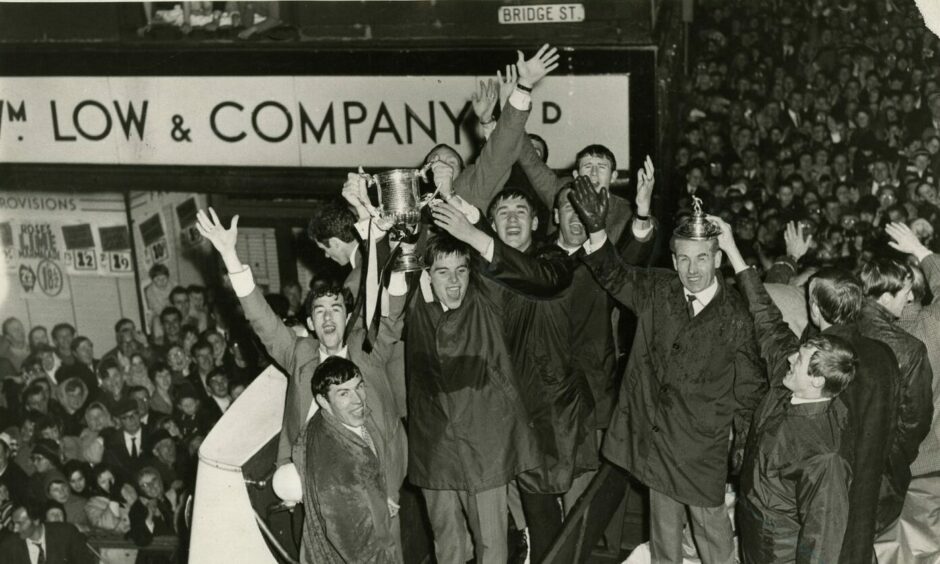
“So long as we concentrate on playing good football we’ll win the cup.”
Dunfermline Athletic manager George Farm predicted his side would win the 1968 Scottish Cup if they played their own game against a more rugged and defensive Hearts team.
He was right.
Farm, a former Scottish international goalkeeper, was a member of the Blackpool team that won the 1953 FA Cup in the famous Matthews Final.
So how did he make history again with the Pars?
It all started at Celtic Park…
Dunfermline Athletic began the Scottish Cup campaign against Celtic at Parkhead.
It meant the 1961 winners were coming up against the European Cup holders and the team who’d won every competition they’d entered the previous season.
Hoops boss Jock Stein had ruled out the possibility of a shock defeat and pointed out that his team had beaten Dunfermline in 10 of their previous 11 meetings.
But the men from Fife upset the form-book to record a famous 2-0 win.
Hugh Robertson and Pat Gardner got their goals in the second half, and the Fifers would go on to eliminate Aberdeen, Partick Thistle and St Johnstone.
John Harvey’s Hearts team scored 15 goals and conceded nine when the 1956 winners defeated Brechin City, Dundee United, Rangers and Morton to reach Hampden.
All roads lead to Hampden Park
As the Dunfermline players strolled through the streets of Dunblane the night before they faced Hearts, they were convinced they would be taking the trophy back to Fife.
More than 150 buses, hundreds of cars and a special train left a near-deserted Dunfermline for Hampden on April 27 with football chants ringing out in the carriages.
Farm gambled in playing 20-year-old John McGarty in only his third first-team game.
The gamble paid off in a big way.
Dunfermline: Bent Martin; Willie Callaghan, John Lunn, John McGarty, Roy Barry, Tom Callaghan; Ian Lister, Bert Paton, Pat Gardner, Hugh Robertson, Alex Edwards.
Substitute: Jim Thomson
Hearts: Jim Cruickshank; Ian Sneddon, Arthur Mann, Alan Anderson, Arthur Thomson, George Miller, Roald Jensen, Jim Townsend, Donald Ford, Jim Irvine, Tommy Traynor.
Substitute: Rene Moller
Both clubs weren’t happy about the ball that was used because it was a different make from what they were used to and the opening 45 minutes passed with little incident.
The final, played before just 56,000 people, came alive in the second half.
From then on in there was only one team in it.
Jack Harness, the former Hearts and Scotland goalkeeper, covered the game for The Sunday Post and described the showpiece at Hampden as “only a half a cup final”.
He wrote: “All the throws, all the goals, all the football, all the excitement, were squeezed into the final 45 minutes.
“It was probably the biggest turn-about in any game I’ve ever seen.
“At the interval, I was giving forth with my opinion that the first team to settle down and play some football would win the cup.
“Dunfermline did just that.
“They started producing some beautiful man-to-man football.
“As far as they were concerned, the ball was now being stroked instead of belted.
“As corner kick followed corner kick at Cruickshank’s end, it was obvious Hearts were wilting and Dunfermline were working up to something.
“That ‘something’ was a four-minute purple patch of Dunfermline’s brilliance, plus a couple of smash-hit goals that really settled the whole show.”
So how good were the Dunfermline cup final goals?
Ian Lister sent a high free-kick over from the left on 56 minutes.
Goalkeeper Jim Cruickshank and defender Arthur Thomson got caught up in a tangle and the ball bounced to Pat Gardner, who hammered his shot into the empty net.
Three minutes later Hugh Robertson sent Bert Paton clean through.
He dribbled his way past Cruickshank but was pulled down before pulling the trigger.
Ian Lister scored from the spot.
Hearts brought on Rene Moller for Roald Jensen and pulled a goal back on 70 minutes when John Lunn turned a Moller cross into his own net.
Any hopes that Hearts had of staging an unlikely comeback were soon extinguished when Pat Gardner scored on 74 minutes with the best goal of the game.
Jack Harness wrote: “Again, it was a bit of short-passing football that baffled Hearts.
“Edwards to Robertson.
“Robertson back to Edwards. Edwards to Gardner, who decided the passing had to stop, and blasted a glorious shot past Cruickshank.
“And, at 3-1, that just about put a fair reflection on the difference between the teams.
“So the Scottish Cup goes – deservedly – to East End Park for the second time in eight years.
“And the Hampden prize for quick-thinking must go to the Fife fan who altered a road sign on the outskirts of Glasgow to read – DunFARMline!”
Ban affects Dunfermline Athletic Scottish Cup heroes of 1968
The only disappointment was Dunfermline Athletic fans being unable to witness their heroes parading the trophy on a lap of honour after being ushered down the tunnel.
The reason?
There was a 10-year ban on laps of honour at Hampden.
That followed crowd trouble at the end of the 1965 League Cup final when Celtic defeated Rangers in front of 107,609 fans.
The team returned to Dunfermline on the Saturday evening and paraded through the streets in an open-top bus after celebrating on the balcony of the City Chambers.
It was the best of times…
The good times didn’t end there.
Dunfermline reached the semi-finals of the European Cup Winners’ Cup the following season, after defeating Apoel Nicosia, Olympiakos and West Bromwich Albion.
The Pars went out to eventual winners Slovan Bratislava, who defeated Barcelona 3-2, but those treasured memories of a golden era remain for the surviving players.
“Those were great nights,” said Bert Paton.
“We’d be up against some teams we’d never heard of, under floodlight, and the novelty would attract fans from all over Scotland.
“I got the only goal of our home tie against Real Zaragoza, played in the famous win over West Brom and the Cup Winners’ Cup semi-final against Slovan Bratislava.
“We lost that 2-1 on aggregate but those are great, great memories.”
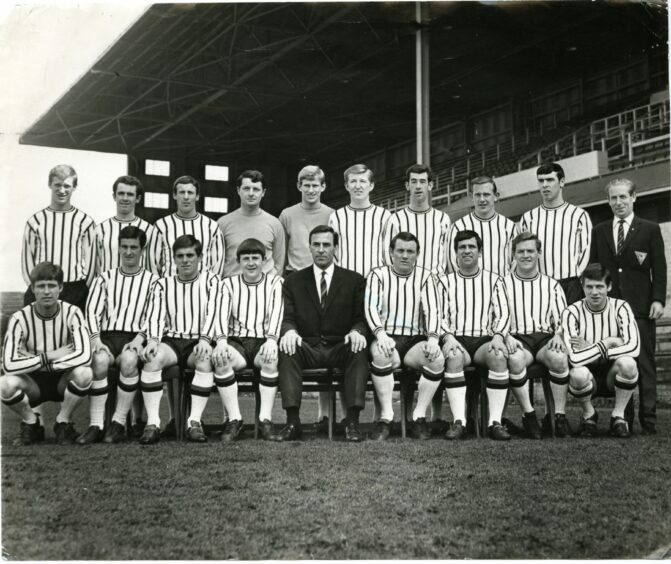
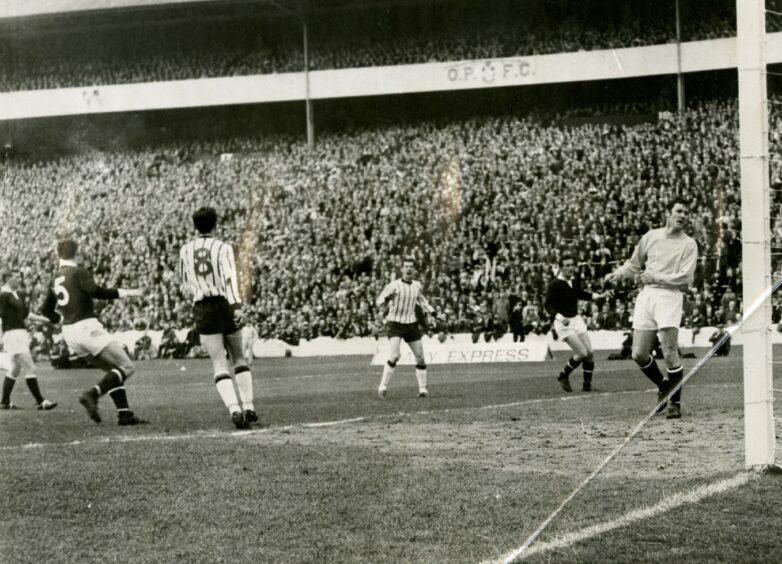
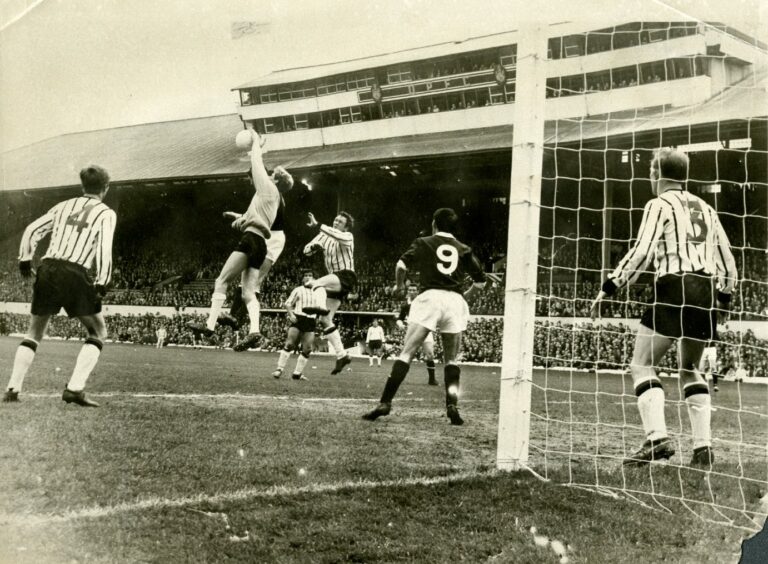
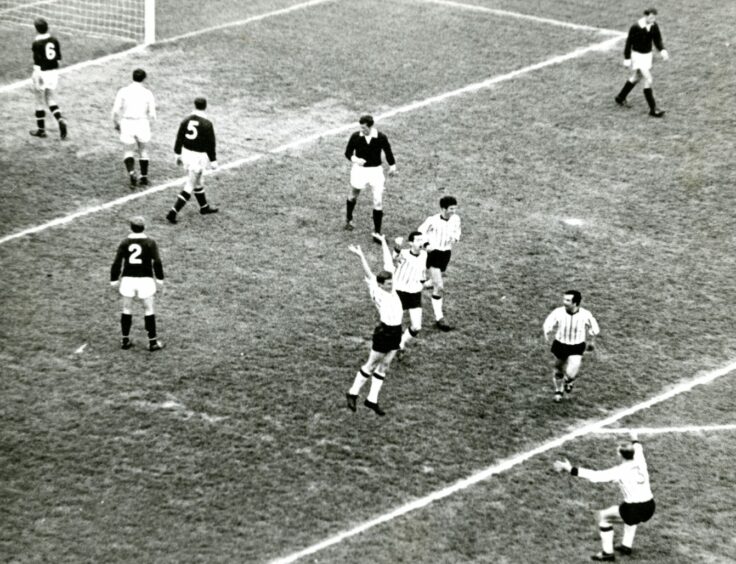
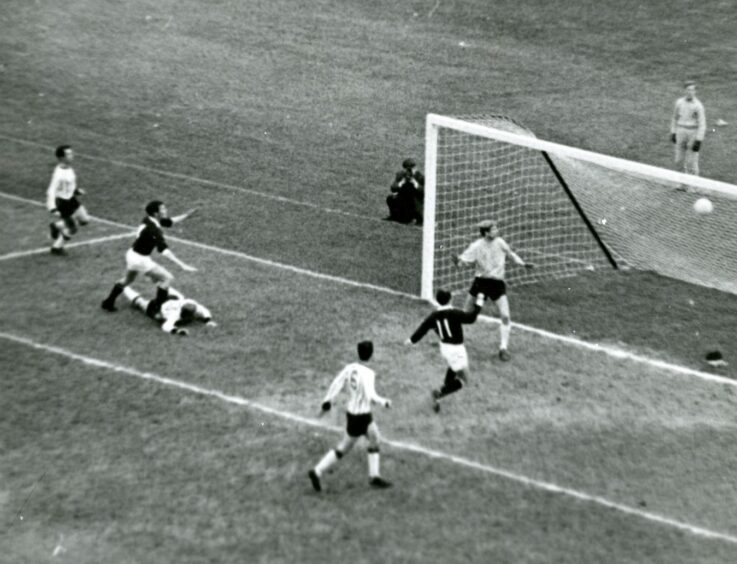
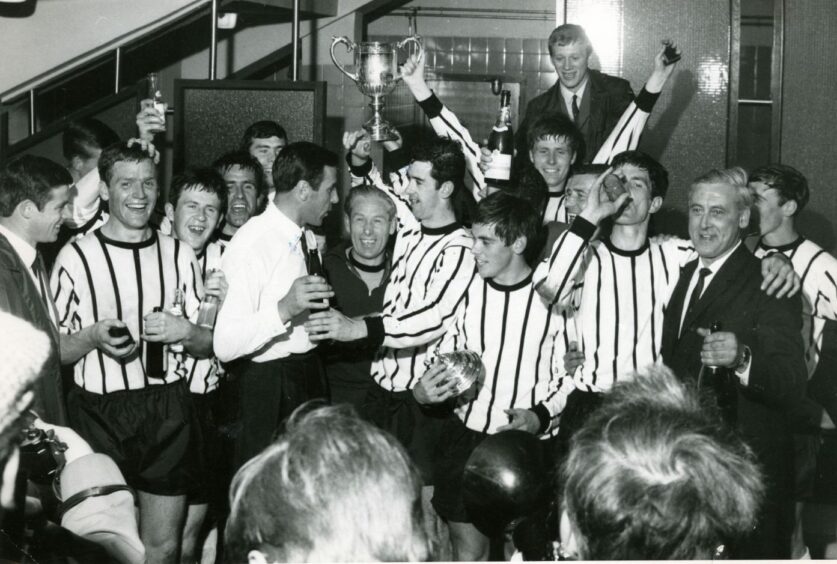
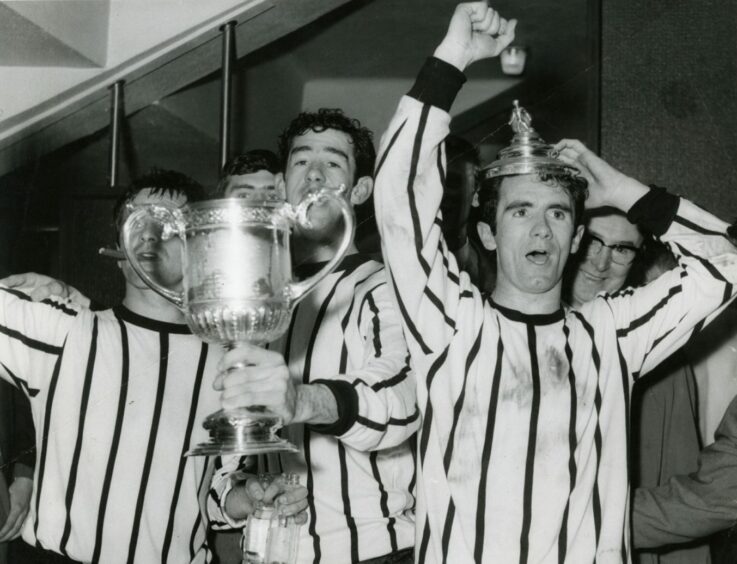
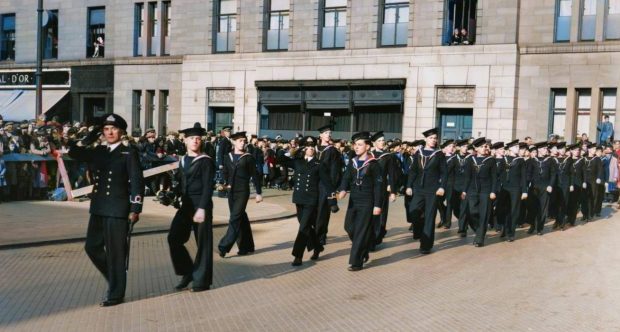
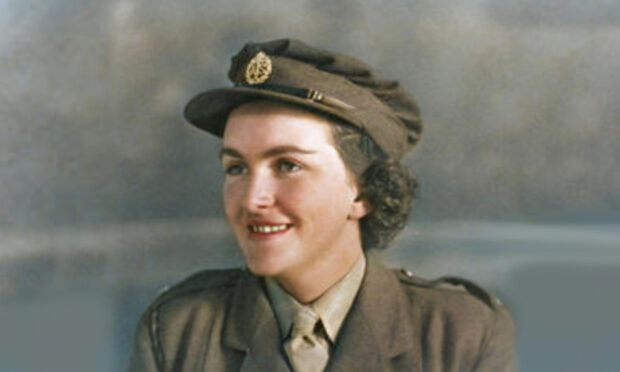
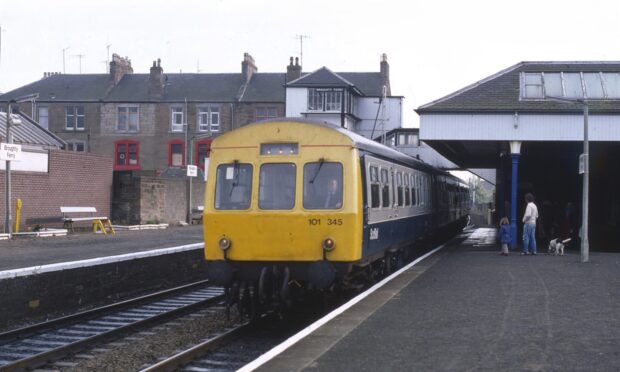
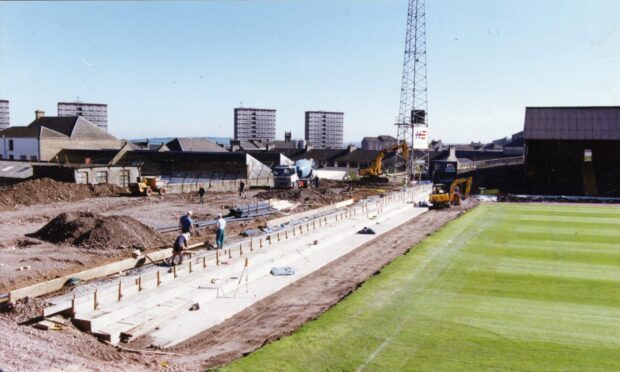
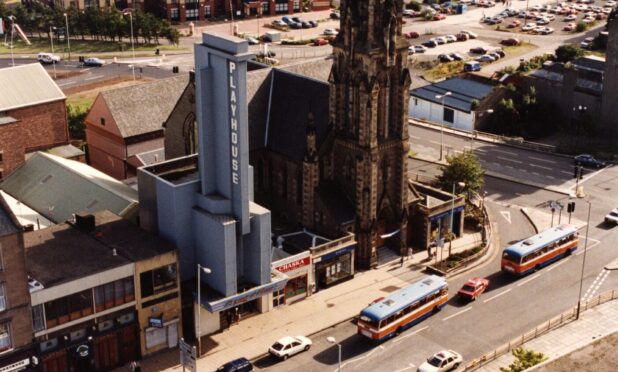
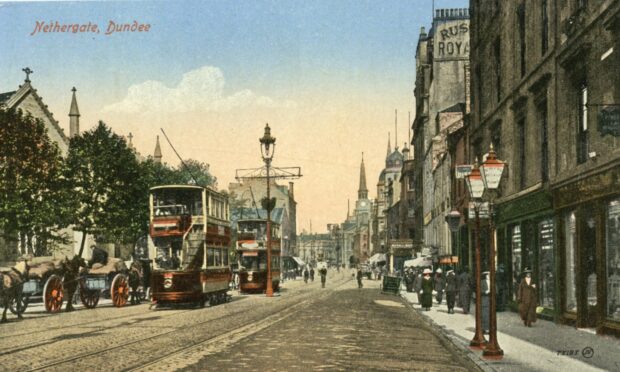




Conversation